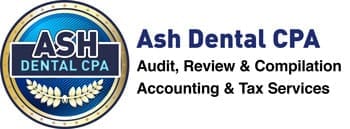Dental Tax Filing Massachusetts: How to File your Dental Office’s Taxes

Dental Tax Filing Massachusetts
Dental Tax Filing Massachusetts | Your dental office may have a hectic routine but you need to file taxes accurately to stay compliant with regulatory authorities. You could outsource the task to a specialist like a dental CPA or you can do it by yourself. Either way, you’ll need to plan ahead of time to manage tax filing in a timely and organized manner.
Here is our quick guide for you to prepare your Dental Tax Filing Massachusetts.
Plan Ahead of the Deadlines
Your dental practice may need to file quarterly estimated taxes. You’ll need to file for annual tax returns before April 15 every year. For this reason, you must do is to plan ahead of these deadlines.
Organize your accounting records and reconcile bank statements to file the tax returns accurately. Discuss important tax regulatory changes that can affect your returns. For instance, the current year has seen several tax provisions for PPP loan forgiveness, EIDL, retirement plans, and so on due to the coronavirus pandemic relief package.
Tax Planning should begin at the beginning of a tax year. It is different from tax preparation. Consult your tax advisor on the best possible scenarios to maximize tax savings without compromising on regulatory requirements.
Know your Tax Codes
The first thing to know is the right entity type of your dental practice. Your tax liability will differ as a sole proprietor than in an LLC or S Corporation.
An important factor in tax filing is knowing the tax brackets. Decide whether you’ll file tax returns as an individual separately or through a sole proprietorship. It will also affect your tax deductions.
Keep the Record Books Straight
In short, accounting records form the basis of any finance function. Accuracy of accounting and financial records means accurate tax filing. For this reason, prepare your accounting books in an organized manner. Remember, you can only claim tax-deductible expenses if you have proof. Likewise, keep the expense receipts to claim tax deductions.
Prepare your financial statements and reconcile them with bank statements. Also, you need to organize the payroll records and payroll taxes. Moreover, insurance and retirement plans are also important contributors to your accounting records.
You can organize accounting records by hiring a professional accountant. For example, organized and timely prepared accounting data means accurately filed tax returns. Furthermore, investing in record-keeping will pay dividends all year long and especially at the time of tax filing for your business.
For example, here is a brief list of accounting records that are essential when Dental Tax Filing Massachusetts
- Receipts from Patients (Revenue)
- Records of funding – by owners or creditors
- Records of all sales and Fee charged to patients
- Expense agreements such as rental, lease, or freight
- Building rental agreement
- Copies of bank statement
- Records of miscellaneous income and expense
Maximizing Tax Deductions and Exemptions
Every business wants to maximize tax savings. However, not every business can do that effectively though. For this reason, you need to stay compliant with tax regulations when it comes to expense deductions and tax exemptions.
Here are a few important expense categories to keep in mind when Dental Tax Filing Massachusetts
- Cost of goods for products and services
- Dentures, Filling Materials, wires, and fillers.
- Vaccinators
- Dressings, masks, mouthwashes, protective gears.
- Any other Products purchased for direct servicing of patients
- Staff salaries and wages including doctors and owners (depending on entity structure).
- Building rent, Mortgage Interest, and Maintenance Costs
- Insurance Costs for the office building
- Utilities and Bills
- Equipment and tools for practice
- Maintenance equipment for building and offices
- Bank loans, interest on credit cards, and other financing costs
- Marketing and promotion expenses
- Accounting, legal, and tax services fees
- Educational and training expenses
- Miscellaneous expenses related to dental practice
There can’t be an exhaustive list of allowed expenses for tax claims. For example, any expense that relates to your dental practice can be used as a tax-deductible expense.
Prepare Tax Returns and Claim Credits
Claiming tax exemptions and credits can be a complex task. In addition, many practitioners do not claim allowed credits, some others overdo it and incur penalties from the IRS.
Moreover, here are a few broader categories of tax credits and exemptions to maximize your tax savings.
- Earned Income Tax Deduction
- Child Tax Credit
- Vehicle Deductions and Standard Mileage
- Child and Dependent Care Credit
- Meals and Entertainments – Business purpose only
- Travel and Business meals deductions
- Retirement Plan Contributions
- Charitable Donations
- Hiring Family members
- Spouse Salary and Practice at Home Deductions
- Research and Education
Apart from these regular deductions and credits, you can also claim currently allowed Coronavirus relief deductions. For instance, sick and family leave credits, increased limits for charitable donations, and PPP loan forgiveness, etc.
Learn more with Ash Dental CPA. Call (508) 458-6789 or request an appointment online.
